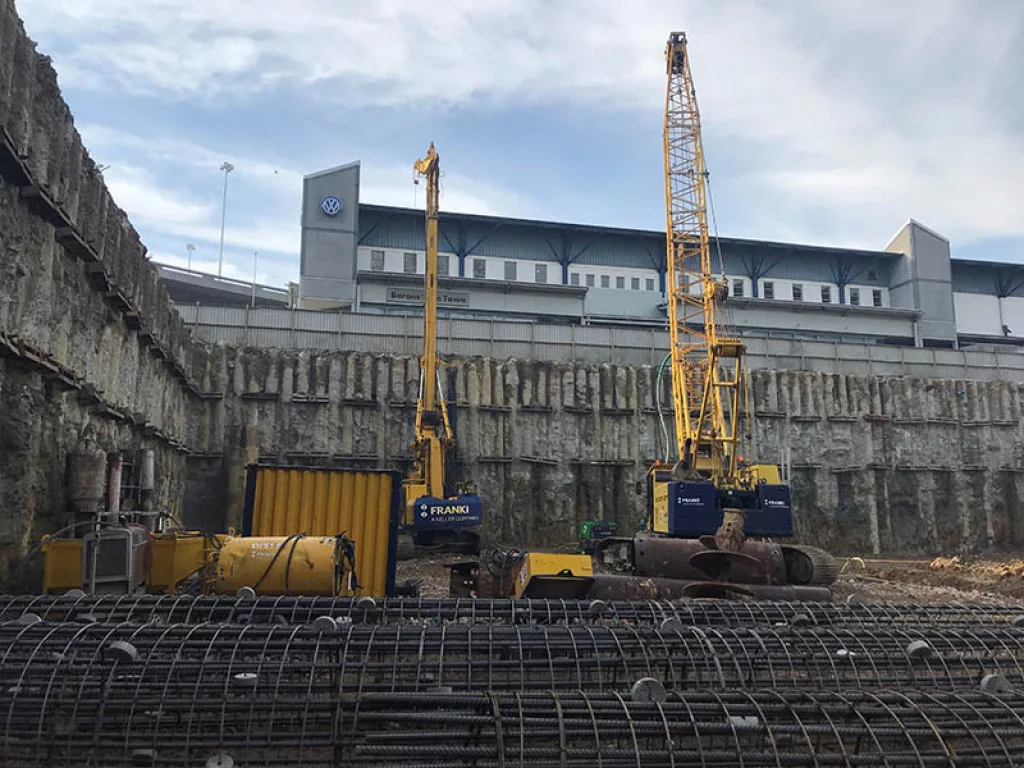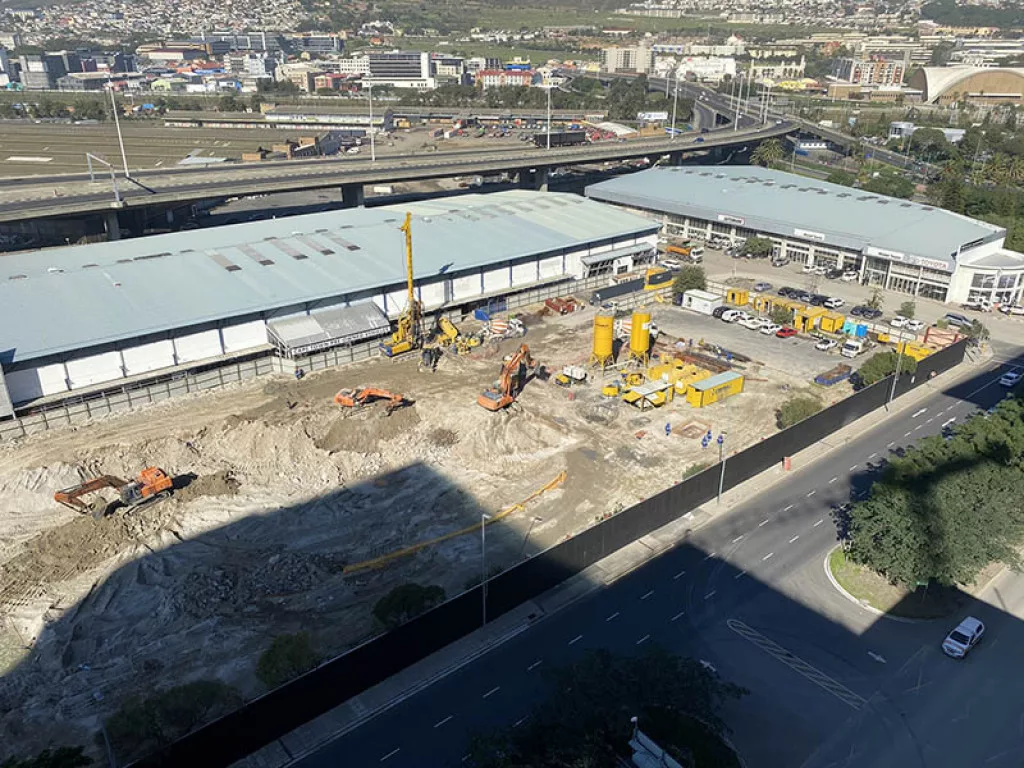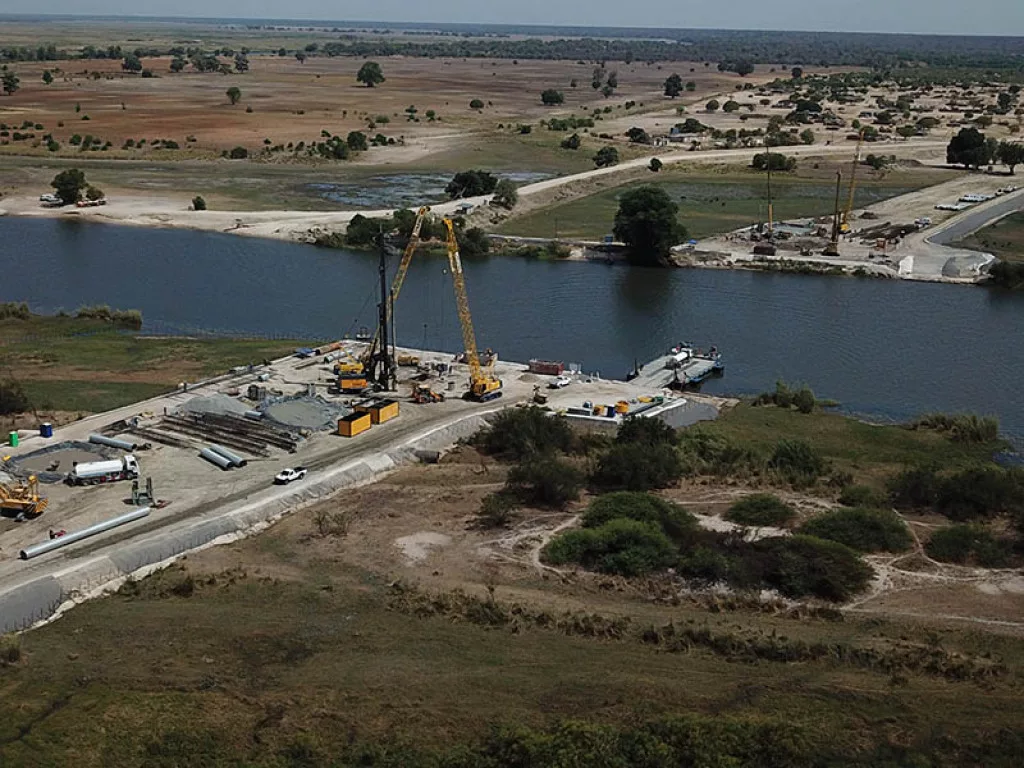Following the negative impacts of the COVID-19 pandemic, we spoke to Keller Africa, about how the company is recovering within the construction sector.
INTRODUCTION
The current South African construction market is tough,” states Brian McDonald, Branch Manager of Keller Geotechnics SA (PTY) LTD.
Due to the industry-shaking COVID-19 pandemic, a large amount of national funding has been redirected to combat the spread of the coronavirus, and alongside this, the virus itself has (and is) creating challenges with regard to maintaining health and safety practices in the workplace and work sites.
Keller is the world’s largest geotechnical specialist contractor providing a wide portfolio of advanced foundation and ground improvement techniques used across the entire construction sector. Keller has three primary divisions namely North America, Europe, and AMEA (Asia-Pacific, Middle East and Africa), in total covering 21 business units, 190 branches, with 10,000 employees and 7,000 annual contracts.
Despite this current unique and challenging period, Brian is optimistic for the future of the industry in South Africa.
“I do expect to see things improve drastically in the coming two years, with more money being earmarked for infrastructure spend to boost the ailing economies,” he suggests.
Brian has been working for Keller since 1979, and his youth interest in engineering led him to the construction sector when opportunities began to arise.
“I was interested in civil engineering from a young age but ended up in construction purely because of timing,” he recalls.

“I was offered two opportunities, one in a consulting company and the other with Keller (Franki at that time). I chose Keller because they offered an immediate start date. I joined Keller as a trainee technician, doing a Diploma in Engineering at the then Natal Technicon. I completed my diploma and was offered a full-time position in 1981.”
Brian then worked through the company starting in Durban as a Site Engineer working for Soiltech, a geotechnical investigation branch of Keller, being involved with multiple projects such as the drilling for tunnels along the Ulundi Richards Bay railway line and the soil study of the newly developed Richards Bay Harbour. He then moved to Lesotho to assist on the Lesotho Highlands hydro-electric power plant and header dam.
“Following this, I was promoted to Johannesburg to manage Soiltech where I held the position for six years, after which I rejoined Keller as a Contracts Manager looking after projects in the Gauteng area,” he tells us.
“I was then offered the opportunity to project manage the piling to the Mozal Smelter, in Mozambique, and then down to Richards Bay for Phase two of the Hillside Smelter. My career then took me to all parts of Southern Africa, from Angola in the West to Kenya in the East.
“I had a short stint with Soletanche Bachy and Stefanutti Socks Marine before re-joining Keller in 2016 to look after Sub-Saharan Africa.”
Keller Africa is a key player in the South African construction sector and sets itself apart from its industry peers through its range of professional services. The firm provides a wide range of offers including ground improvement, earth retention, piling and marine.
“No other Southern African based company offers the full package,” Brian affirms. “Keller Africa has the backing of the largest geotechnical company in the world, and our inhouse design department can produce world-class designs to suit the client’s needs.
“Keller employs around 1,500 geotechnical engineers worldwide, and over 200 of them focus purely on design. On top of this, 50 percent of our projects are design-and-build, where value engineering can reduce overall costs by up to 40 percent as well as save time in the process.”
This provision of world-class offerings to clients can be seen throughout Keller’s various continental projects. Keller’s Mozambique LNG project exemplifies this.
The Mozambique LNG project, based in Cabo Delgado, was a two-train, nominal 6.44 million tonnes per annum (MTPA) per train, LNG facility using APCI liquefaction technology.
Hydrocarbon condensate separated from the feed is processed and exported separately.
The facility is to be constructed at a remote coastal location in the Cabo Delgado province of Mozambique.
“There were several challenges facing the project,” Brian elaborates.
“The shipping and transport of all the necessary equipment was an issue, as the only access to the site is by air or sea. On top of this, there are stringent performance requirements required and specified for dynamic compaction, and there were highly variable ground conditions that required constant adjustment of compaction energy to achieve such stringent performance specifications.”
Keller’s solutions to these challenges included ground improvement using dynamic compaction and stone columns. The dynamic compaction works included a total of 1.5 million metre-squared area with treatment depths of between five and 12 metres, and the stone column installation totalled 1,734 vibro replacement stone columns at a diameter and depth of 0.9 metres and 18 metres.
“The project should exceed expected results,” Brian tells us proudly. “It provided a ground improvement solution for the client while also resulting in significant cost savings and reduces carbon emission considerably.”
It is the partners, suppliers and employees that are the key to Keller Africa’s company operations.


“Subcontractors and suppliers form an integral part of Keller’s success, which would be impossible without reliable suppliers for materials, and plant spares,” Brian explains.
“What we are looking for is a world class product that is readily available in all parts of Southern Africa. We expect a lot from all our suppliers and in turn, we would like to think that we treat them well, offering advanced notice for orders with a reliable payment plan to suit.
“Cash flow is as much our concern as it is for suppliers and subcontractors.”
As for its employees, Keller boasts a great staff retention record. These dedicated individuals and teams are shown the recognition they deserve through internal promotion.
As a result of this, many of the firm’s current employees have over 20 years of company service under their belts, with some even exceeding beyond 40 years.
Into the future, these employees are incredibly important to the aims and goals of the company – that of streamlining company operations and minimising unnecessary business elements.
“For the coming year, Keller is in recovery mode,” Brian elaborates.
“Due to the COVID-19 pandemic, Keller Africa was forced to restructure and consolidate the company into a leaner structure.
“Our near-term goal is to maintain a positive bottom line and look after our cash. To this end we have closed a few of the non-profitable offices in Africa and are concentrating on our core market and clients. We have restructured in such a way that focuses on three different areas: South Africa, Mauritius, and East Africa. We are concentrating on tapping into the potential oil and gas on the East Coast of Africa, the potential infrastructure spend in South Africa and the continued government spend in Mauritius and the Indian Ocean Islands.
“Our intention is to introduce more ground improvement techniques that will substantially cut the cost of foundations and increase the viability of certain projects. For instance, changing the planned foundations of the LNG tanks in Mozambique from piles to dynamic compaction, we saved the client more than 50 percent on that portion of the project.”
































